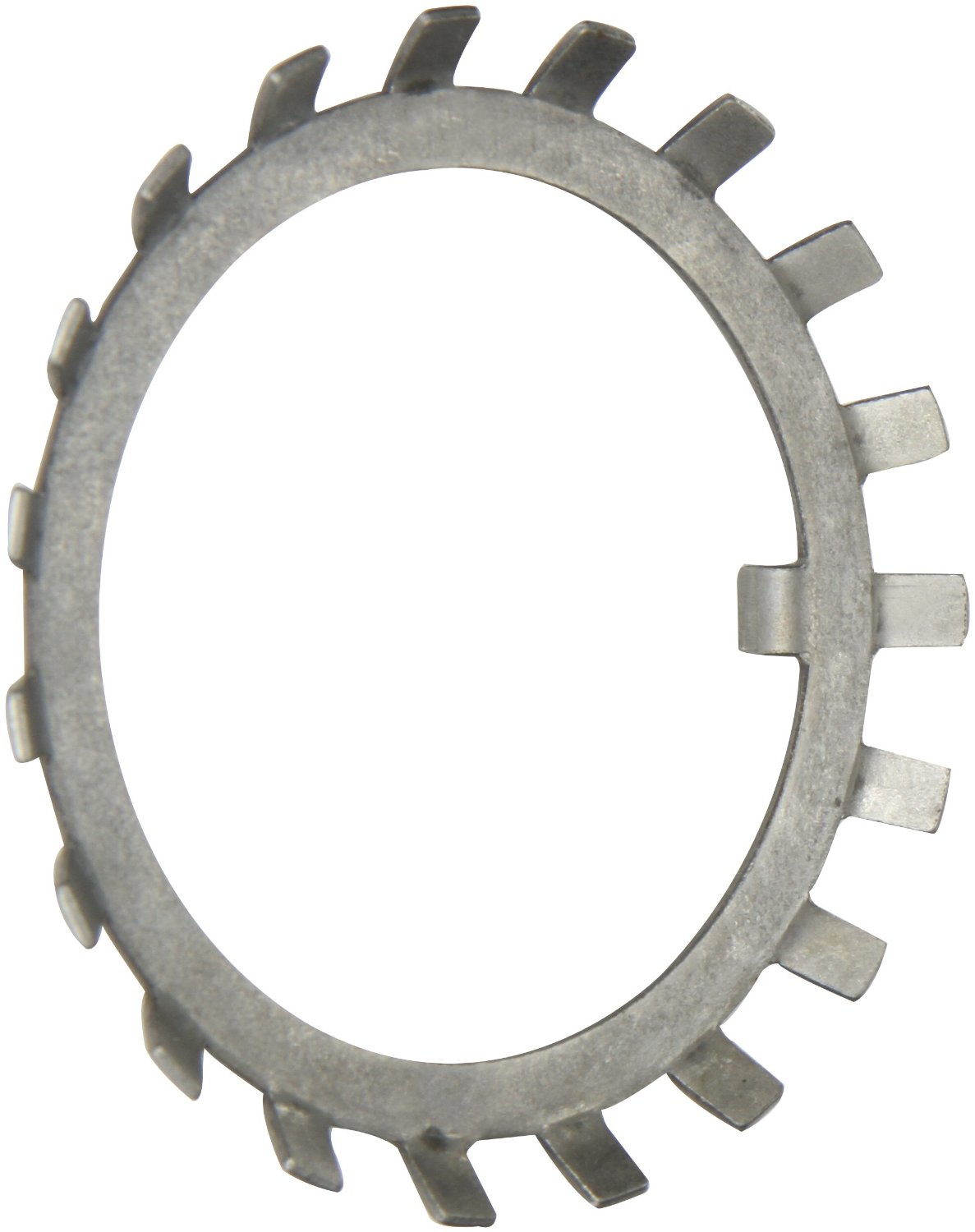Specifications for this item
Brand Name FAG Bearings
Part Number W13
Material Type Steel
System of Measurement Metric
Bore Diameter 65 mm
Outside Diameter 3-37/64 inches
Overall Width 0.0630 inches
EAN 4026677356437
Manufacturer Series Number W Series
National Stock Number 5310-00-186-0972
Number of Items 1
UNSPSC Code 31170000
Product Features
Lock washer for preventing lock nut (sold separately) from turning
Steel for strength and durability
Interior tab for locking into shaft keyway
Imperial unit measurement for industry consistency
Product Description
This FAG W series steel inch measurement lock washer with interior and exterior tabs is suitable for use in locating a bearing on a shaft or adapter sleeve. The washer has an interior tab that locks into the shaft keyway and exterior tabs that lock the nut (sold separately) in position when one of the washer tabs is bent over into one of the slots around the circumference of the nut.
Plain bearings provide low-friction sliding contact for relative motion between parts of a machine. They are the simplest type of bearing, with no rolling elements, and there are three basic types of plain bearings: radial plain bearings (also called sleeve bearings or bushings) to support rotating or reciprocating shafts, thrust bearings (also called washers) to support axial loads on shafts, and linear bearings to support and guide the motion of parts in a straight line. Flanged sleeve bearings have a flange on one end to support axial loads. Spherical plain bearings are radial bearings that allow for angular misalignment of the shaft. Plain bearings are made from durable, low-friction materials such as sintered or cast bronze alloys, plastic, or a combination of a metal shell and a plastic bearing surface. They can be lubricated externally or by a lubricant embedded in the bearing material. Plain bearings are used in automobiles, construction and mining equipment, textile manufacturing equipment, and robotics, among others.
FAG manufactures a variety of bearings that meet International Organization for Standardization (ISO) and Deutsches Institut für Normung (DIN) standards for quality assurance. The company, founded in 1883, is based in Schweinfurt, Germany.





